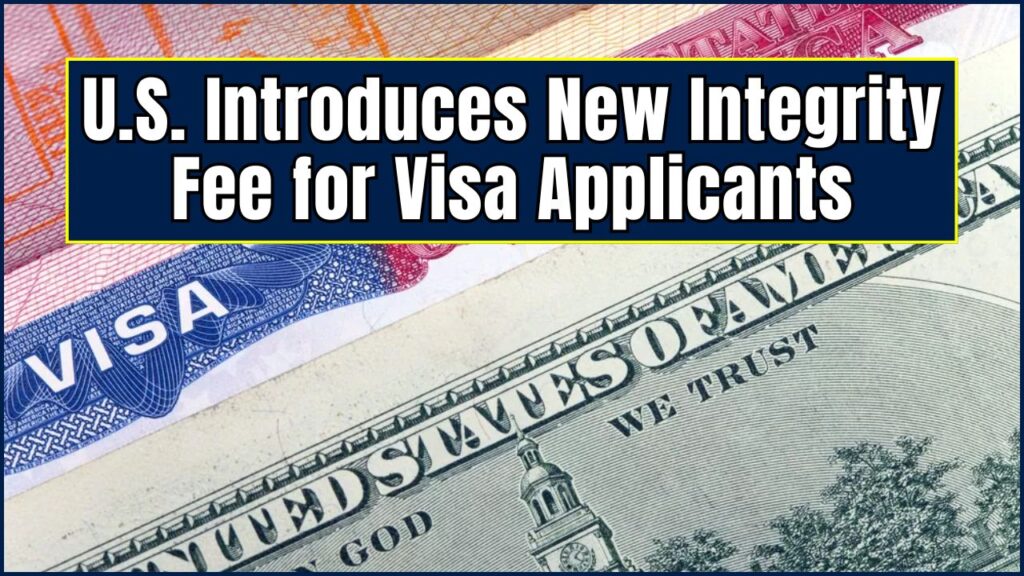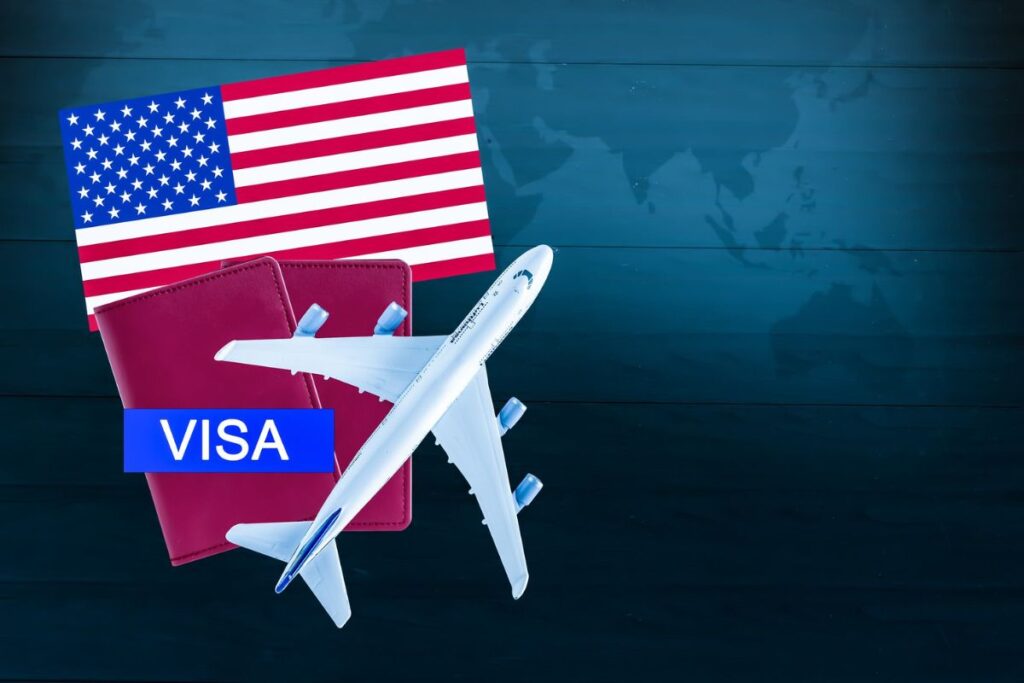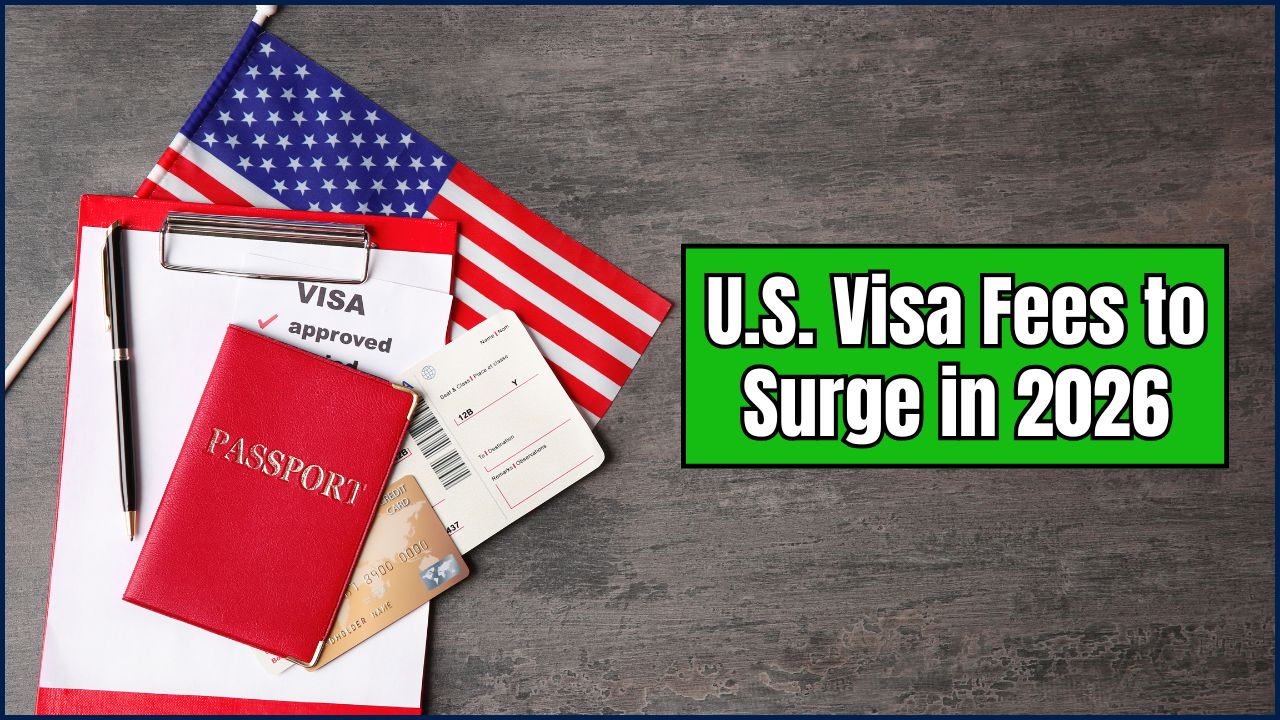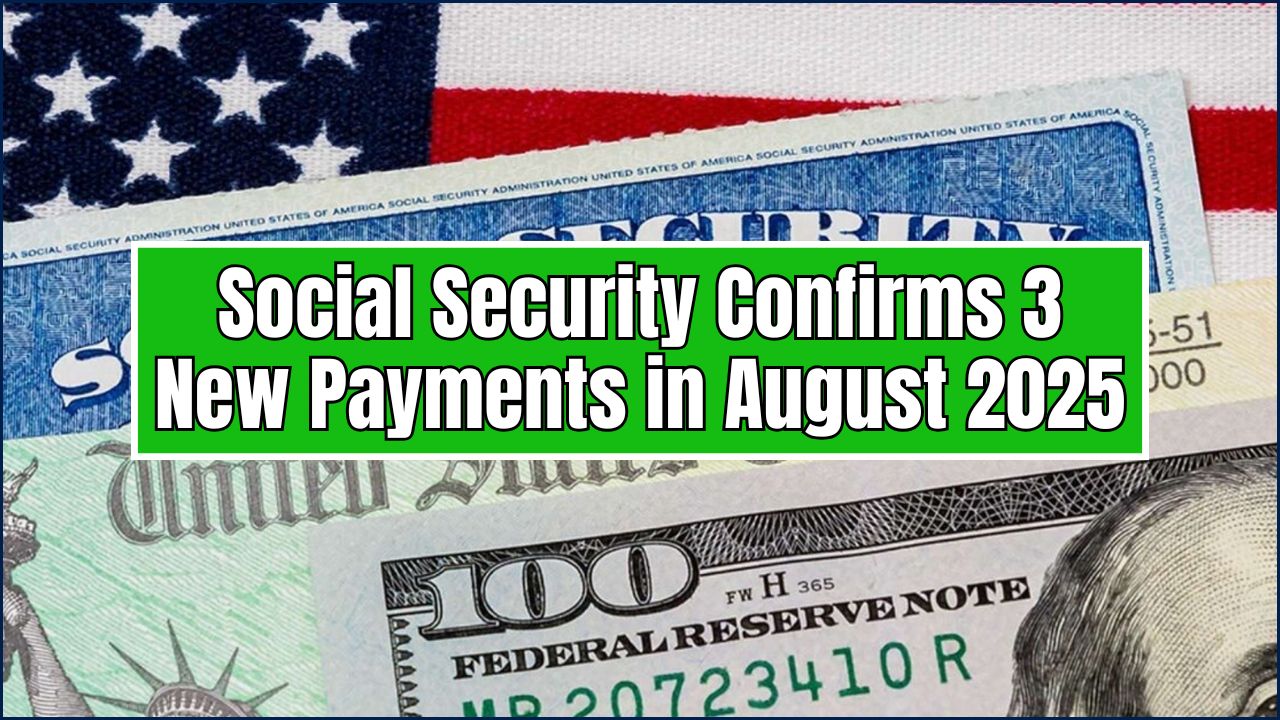The U.S. government has introduced a new visa integrity fee for most nonimmigrant visa applicants, with the minimum cost set at $250. This new fee, effective from October 1, 2025, under the “One Big Beautiful Bill Act,” has sparked significant discussions and concerns about its implications for travelers, visa applicants, and employers. This article will explore the ins and outs of the new Visa Integrity Fee, providing practical advice, answers to frequently asked questions, and insights into how this change could affect U.S. visa processing.

If you’re planning to visit the United States anytime soon or you’re an employer sponsoring workers, you’ll want to understand the changes to the visa process. Let’s break it down so you know exactly what’s coming.
U.S. Introduces New Integrity Fee for Visa Applicants
| Key Data | Details |
|---|---|
| New Fee | $250 minimum integrity fee |
| Effective Date | October 1, 2025 (for fiscal year 2026) |
| Visa Categories Affected | B-1/B-2 (tourist), F-1 (student), J-1 (exchange), H-1B, L-1, O-1, and others |
| Exemption | Travelers from Visa Waiver Program countries (e.g., UK, Japan, Germany, Canada) |
| Refund Eligibility | Possible under specific conditions (departure within 5 days, no unauthorized employment, no overstay) |
| Official Sources | U.S. Department of State, Boundless |
The Visa Integrity Fee is a new addition to the U.S. visa application process, set to begin in 2025. While the fee is aimed at strengthening the immigration system, it has sparked concerns over the increased cost of obtaining a U.S. visa. For those who are eligible to pay, understanding the process and knowing about potential refunds will be crucial.
What Is the Visa Integrity Fee?
In simple terms, the visa integrity fee is an additional charge that most applicants will need to pay when applying for a U.S. nonimmigrant visa. This fee is designed to strengthen the U.S. immigration system by supporting improvements to visa processing, enforcement, and fraud prevention efforts. It’s part of broader immigration reforms introduced with the “One Big Beautiful Bill Act,” signed into law on July 4, 2025.
Why Is This Fee Being Introduced?
The U.S. government has said that this fee is necessary to help cover the rising costs associated with running the immigration system. This includes combating fraud, improving visa processing, and supporting border security. In theory, the Visa Integrity Fee will fund critical programs aimed at making the U.S. immigration process more secure and efficient.
While this may sound reasonable on the surface, many critics believe it will create additional burdens for travelers, especially those coming from countries with already high visa application costs. For example, a tourist visa application for Indian nationals may increase from approximately ₹15,800 ($185) to nearly ₹40,000 ($472) with the new fee.
A Bit of History: Changes in U.S. Visa Fees
Visa fees have been an ongoing discussion for decades. The Visa Integrity Fee is just the latest in a series of changes designed to address U.S. immigration and security concerns. The U.S. has raised visa application fees in the past, notably in 2014 when the cost of a B-1/B-2 visa increased from $160 to $190. Now, with the introduction of this additional fee, travelers face an even higher price tag for securing a visa to the United States.
For many, the Visa Integrity Fee could potentially be a deal-breaker, especially for those with limited financial resources. Those applying for student or tourist visas are likely to see the most significant financial impact, as this extra cost could substantially increase the overall expense of their application.
Global Comparison: How U.S. Visa Fees Stack Up
While the U.S. is not the only country that charges fees for visa applications, its costs have long been among the highest in the world. Let’s compare the Visa Integrity Fee with visa fees in other countries:
- United Kingdom: For a standard visitor visa to the UK, applicants must pay £100 ($125), far lower than the U.S. fee structure.
- Canada: Canada’s visitor visa fee is currently CAD $100 ($75), but applicants must also pay biometric fees and other costs.
- Australia: Australia’s visitor visa costs AUD $145 ($95), which is considerably lower than the cost of a U.S. tourist visa, even before the integrity fee.
Given these figures, the Visa Integrity Fee introduces a competitive disadvantage for U.S. visa applications, especially for applicants from developing nations.
How Will the Fee Impact Visa Applicants?
The new Visa Integrity Fee will primarily affect nonimmigrant visa applicants. This includes people applying for work, study, and tourist visas. Here’s what you need to know:
- Tourist Visas: Visitors from countries like India, Mexico, and Brazil will be directly impacted, as the cost of a B-1/B-2 tourist visa will increase significantly. This could potentially deter many travelers who are already struggling with the current costs.
- Student Visas: For those applying for student visas (F-1), this added fee could make studying in the U.S. a more expensive venture, possibly pushing students to look for alternative study-abroad opportunities.
- Work Visas: Employers looking to sponsor H-1B or L-1 workers will see their visa-related costs increase. This may cause companies to reconsider hiring foreign talent, especially smaller businesses with tight budgets.
Refunds: Are They Possible?
One of the most significant concerns about the new Visa Integrity Fee is the potential for refunds. While the fee is non-waivable, the U.S. Department of State has outlined specific conditions under which applicants might qualify for a refund. However, it’s important to note that these refunds are not guaranteed and may be difficult to obtain.
Refunds are possible under the following conditions:
- You leave the U.S. within 5 days of your visa’s expiration.
- You avoid unauthorized employment.
- You don’t overstay your authorized period.
The process for obtaining a refund is still unclear, and many experts speculate that only a small number of applicants will successfully receive reimbursement. For instance, even though you might be eligible, there is currently no detailed process for how applicants will claim their refunds.
Who Is Exempt from the Visa Integrity Fee?
Not all visa applicants will need to pay the Visa Integrity Fee. Some exemptions apply:
- Travelers from Visa Waiver Program (VWP) countries: Citizens from countries that participate in the VWP, like the UK, Japan, Germany, and most of Canada, will not be required to pay this fee.
- Certain diplomatic and international organizations: Diplomats and people affiliated with international organizations will also be exempt from this charge.

If you’re a citizen of a VWP country, you’re good to go without this extra cost!
Steps to Apply for a U.S. Visa
If you’re one of the many applicants affected by the new Visa Integrity Fee, you will need to follow these steps to apply for a U.S. visa. Below is a simplified guide to help you navigate the process:
1. Determine the Right Visa Type
There are various types of U.S. visas, each with different eligibility requirements. The first step is determining which visa category applies to your situation. Common nonimmigrant visa types include:
- B-1/B-2: Tourist or business visitors
- F-1: Student visa
- J-1: Exchange visitor visa
- H-1B: Work visa for specialty occupations
- L-1: Intra-company transferee visa
2. Complete the DS-160 Form
Once you know which visa to apply for, you’ll need to fill out the DS-160 form. This form collects personal information and details about your intended visit to the U.S.
3. Pay the Application Fee
After filling out the DS-160, you’ll be asked to pay the visa application fee, which varies depending on the type of visa. For most nonimmigrant visa applicants, this fee will remain unchanged, but remember that the new Visa Integrity Fee will be added on top.
4. Schedule an Interview
Once the application fee is paid, schedule an interview at the U.S. embassy or consulate in your home country. Be prepared to provide documents such as:
- Your passport
- DS-160 confirmation page
- Visa application fee receipt
- Passport-size photo (as per U.S. specifications)
5. Attend the Visa Interview
During the interview, the consular officer will ask you questions about your travel plans, financial stability, and ties to your home country. It’s important to be honest and prepared. If everything goes smoothly, you will receive your visa, and the Visa Integrity Fee will be included as part of the total charges.
FAQs
Q: How much will the Visa Integrity Fee cost?
A: The minimum fee is $250, but this amount could be higher depending on the visa type.
Q: Will all visa applicants need to pay the fee?
A: No, travelers from Visa Waiver Program countries and certain diplomats are exempt from the fee.
Q: Can I get a refund for the fee?
A: Refunds are possible but rare. You must meet specific conditions like leaving the U.S. within five days of your visa expiration.
Q: When will the Visa Integrity Fee take effect?
A: The fee will go into effect on October 1, 2025, for the fiscal year 2026.







